Below you will find the full biographies of those participating at the AIT 2025 Forum, which will bring together a multi-disciplinary set of academics to meet with practitioners and leaders from civil society, business, industry, and government.
The aim of the AIT forums is to foster more critical perspectives on the history of computers, telecommunications, the internet, and related digital media.
Timings: 10am-5pm
Date: Tuesday 28 January 2025
Location: Livery Hall of the Worshipful Company of Information Technologists – 39A Bartholomew Close London EC1A 7JN – and online
An overview of AIT’s 2025 Forum
John Carrington

From 1983 John played a key role in the development of cellular communications in the UK and Europe and was the founding CEO of Cellnet – now O2. He was an initial signatory in 1987 of the agreement that established the digital international cellular standard, GSM. After BT John worked in Cable and Wireless developing cellular businesses in the UK and worldwide before becoming the Management Board member responsible for operations in 34 countries, including the Caribbean. From 1995 he worked with a number of emerging companies as Chair or CEO, most notably Mobile Systems International plc.
– John will open the Forum with an introductory speech
Tola Sargeant

– Tola will say a few words at the beginning of the event and chair the session on Journalism in the Digital Age
Professor Bill Dutton
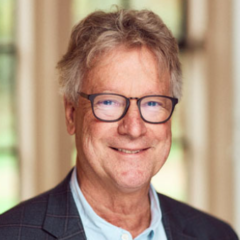
Professor William H Dutton, Trustee of Archives of IT, was founding director of the Oxford Internet Institute (OII), Oxford’s first Professor of Internet Studies. Currently, Professor Dutton is a Fellow at the Oxford Martin School, University of Oxford and Director of the Portulans Institute, Washington DC.
Prof Dutton’s most recent book, The Fifth Estate (OUP 2023) focuses on the power shift of the digital age and explains how media regulation and cybersecurity need to be joined on shaping the future of regulating information and communication technologies, such as the internet and social media.
– Professor Dutton, who is also the Chair of the AIT Forum Programme Committee, will provide the closing remarks to the 2025 Forum
Professor Rich Ling
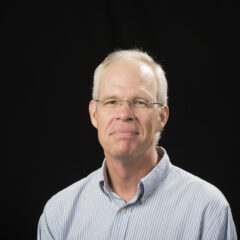
– Professor Rich Ling will give the opening keynote, entitled: Everything, Everywhere, All at Once: The Evolution of Digital Norms
Professor Jim Norton
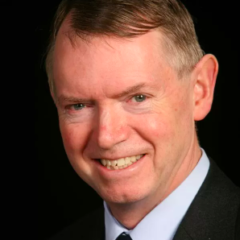
Prof Norton is former Pro-Chancellor of Coventry University and has a long career in technology starting out at the Post Office on its Experimental Packet Switched Services.
He is a fellow and past member of the Royal Academy of Engineering Audit & Risk Committee, past Chair of the Royal Academy of Engineering Community of Practice in Digital Systems and past President of BCS, the Chartered Institute for IT. He is a trustee and board member of the Foundation for Information Policy Research, FIPR, and Visiting Professor of Electronic and Electrical Engineering at the University of Sheffield.
– Prof Norton will chair a roundtable on Professionalism in the Digital Age
Sir Kenneth Olisa OBE
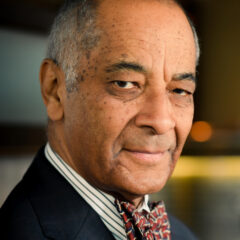
The first British-born black man to be appointed as a Director of a FTSE 100 company (Reuters) he has also served on the Boards of Open Text, Thomson Reuters, Eurasian Natural Resources Corporation and several AIM-listed businesses. Today he chairs a portfolio of high potential technology businesses including Inogesis (home to the Virtual Technology Cluster), Interswitch (Nigeria’s leading payments company) and Proxymity – (digital investor communications platform) Interswitch.
Sir Ken is equally committed to public service and has been an NHS Trust Director, an inaugural member of regulators, Postal Service Commission and IPSA (Independent Parliamentary Standard Authority) and a Governor of the Peabody Trust.
He is also the founder of the Aleto Foundation; President of Thames Reach (for which he received an OBE in 2010); President of London Youth. In 2015 Her Majesty the Queen, appointed him as her Lord-Lieutenant of Greater London. He was knighted in 2018 for services to business and philanthropy and in 2021 he was appointed High Bailiff and Searcher of the Sanctuary at Westminster Abbey and a Trustee of the Prince of Wales’s (now King Charles III’s) Charitable Fund. On 1 January 2022, Ken became Chair of BusinessLDN (formerly known as London First.)
– Sir Ken will be speaking as part of the roundtable on Professionalism in the Digital Age
Paul Martynenko MBE
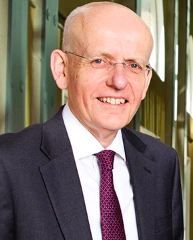
He joined National Physical Laboratory as a Distinguished Visitor (Digital and Data) in 2019 and he works closely with the commercial and research teams to further develop NPL’s digital and data strategy as it moves towards ‘measurement in the digital age’.
Paul was the Vice President and Technical Executive for IBM in Europe before retiring in August 2016. Joining IBM in the late 1970s, Paul held a variety of technical, professional, management, and executive positions across IBM, in development, delivery, product support, and sales and distribution. He was the IBM IT specialist profession leader in UK and Europe for 10 years.
In 2024 Paul was awarded an MBE in the King’s New Year’s Honours List in recognition of his voluntary roles in support of the IT profession in the UK.
– Paul will be speaking as part of the roundtable on Professionalism in the Digital Age
Bill Thompson
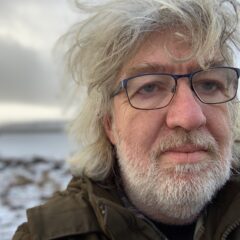
Bill has worked in and around the internet since 1984, and was internet ambassador for the UK’s first ISP, PIPEX, before joining The Guardian. He taught in the Journalism Department at City University London and is an adjunct Professor at Southampton University, a board member of the Web Science Trust, and an Advisory Board member of the Oxford Internet Institute. He runs the Working for an MP website.
– He will give a keynote speech as part of the session, Journalism in the Digital Age: Changing Roles and Norms and will argue that digital media have created networked amateur or citizen journalists, some of whom have been perceived as a challenge to professional journalists. New media has also changed what journalists need to be able to do, such as to be able to communicate online, and even be more like an influencer, than an objective reporter. So, he will pose the question: What does it mean to be a professional journalist in the digital age?
Professor Jane Winters
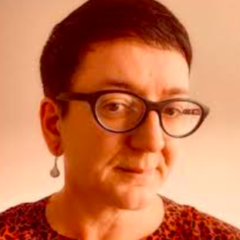
She is a Fellow and Councillor of the Royal Historical Society, and a member of RESAW (Research Infrastructure for the Study of the Archived Web), the Academic Steering & Advocacy Committee of the Open Library of Humanities, the UK Medical Heritage Library Academic Advisory Group, the Advisory Board of the Digital Preservation Coalition, the Advisory Board of the European Holocaust Research Infrastructure, the Advisory Board of the Academic Book of the Future project, and the Advisory Board of the E-Ark project.
– Prof Winters will moderate the session, Norms for Students of the Digital Age: From Calculators to ChatGPT
Ravi Chagger

– Ravi will talk as part of the session, Norms for Students of the Digital Age: From Calculators to ChatGPT
Kieran Gilmurray
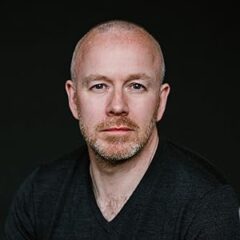
Kieran’s extensive corporate background and deep insights into business make him a trusted advisor for companies worldwide. When he’s not chairing international conferences or delivering masterclasses to industry leaders, he is actively consulting for leading global businesses, driving digital transformation and innovation.
– Kieran will talk as part of the session, Norms for Students of the Digital Age: From Calculators to ChatGPT
Professor Martin Campbell-Kelly
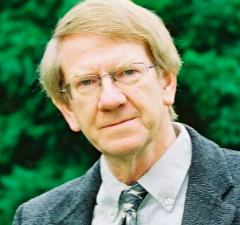
His books include ICL: A Business and Technical History, From Airline Reservations to Sonic the Hedgehog: A History of the Software Industry, and From Mainframes to Smartphones: A History of the International Computer Industry (co-authored with Daniel Garcia-Swartz). Professor Campbell-Kelly has held visiting appointments at the National Archive for the History of Computing at Manchester University, the London School of Economics, and the Massachusetts Institute of Technology.
He is a Fellow of the British Computer Society and a Fellow of the Learned Society of Wales. He is also a member of the editorial boards of the IEEE Annals of the History of Computing, the International Journal for the History of Engineering and Technology, and the Springer Series in the History of Computing.
Prof Campbell-Kelly will chair the Paper Session from Multiple Disciplinary Perspectives
Kate Bradley
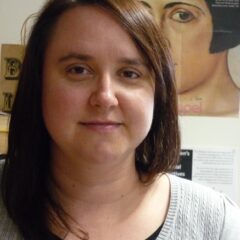
– Kate will give a talk on Telephone helplines in Britain, 1965-1999: Countercultural DIY activism to professional welfare services over the phone as part of the Paper Session from Multiple Disciplinary Perspectives
Patricia Esteve-González
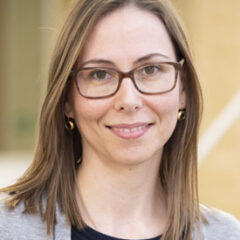
She has a PhD in Economics and her research interests focus on the role of institutions in competitive environments and the mechanism design of their policies to change incentives of actors in such environments. Her published research uses theoretical and empirical methodologies in a variety of contexts, including topics on national cybersecurity capacities, working from home, public procurement, and affirmative action.
– Patricia will give a talk on Contextual Factors Shaping the Application of UN Cyber Norms, a Cybersecurity Capacity Study as part of the Paper Session from Multiple Disciplinary Perspectives
Dr George Zoukas and Dr Jonathan Foster
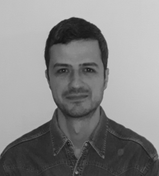
Technology, with a background in humanities and social sciences. I have interdisciplinary
research and teaching interests around the interplay among science, technology and
society, focusing especially on the sociology and history of social media and the Internet,
the communication and public image of science and technology and the sociology of
scientific knowledge (SSK).
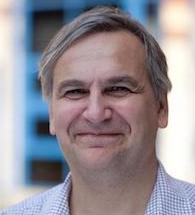
University of Sheffield. His research interests are in information governance and ethics. Jonathan has
been a Principal Investigator for Tools for Life: Data Sharing and Public Health (Wellcome Trust),
Understanding Fairness in Data-Driven Artificial Intelligence for Mental Health (AHRC), Co-
Investigator for Eliciting Cybersecurity Narratives: Bricoleur Story Completion, Decision-Making and
Security Design (ESRC), and is currently Co-Investigator for Trustworthy Machine Learning
Approaches to Energy Consumption Data (Innovate UK).
– They will give a talk entitled: Towards Assuring Data Fairness in Trustworthy Machine Learning as part of the Paper Session from Multiple Disciplinary Perspectives